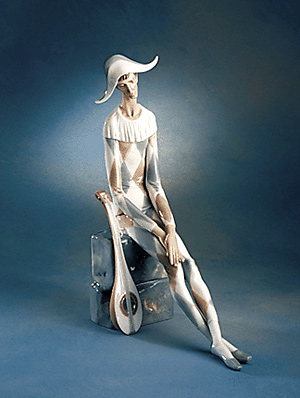
“Sad Harlequin” by: Lladro
my broken heart is hurting, so
tears now reside where joy ran free.
I will not smile today, you see
she loved my gold, but not so me.
Played for a fool, I did not know.
I will not smile today you see,
my broken heart is hurting so!
(revised © 2018)
